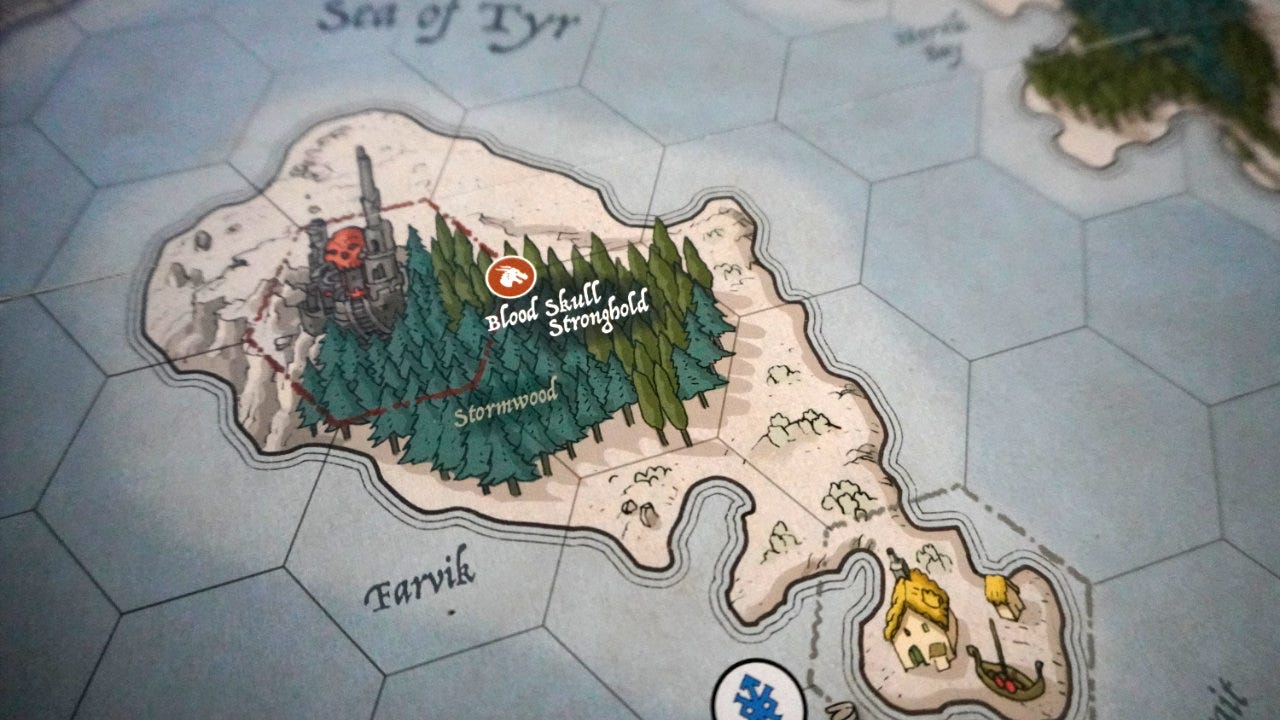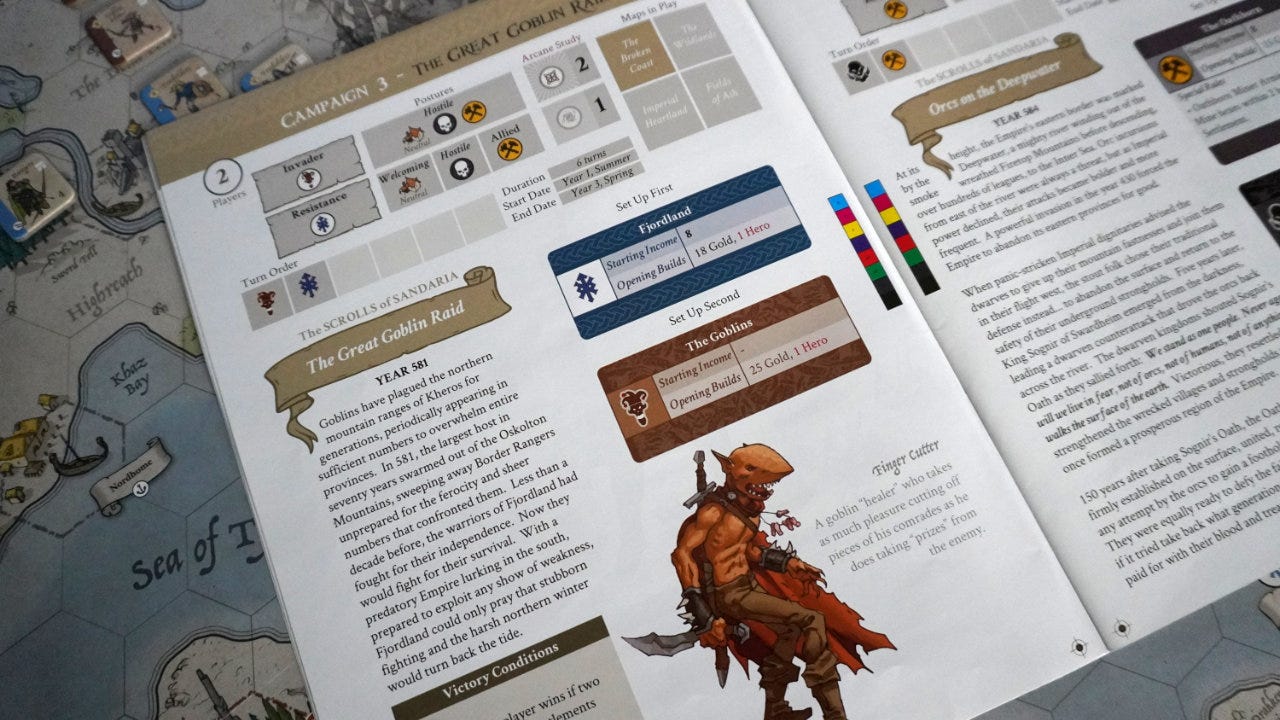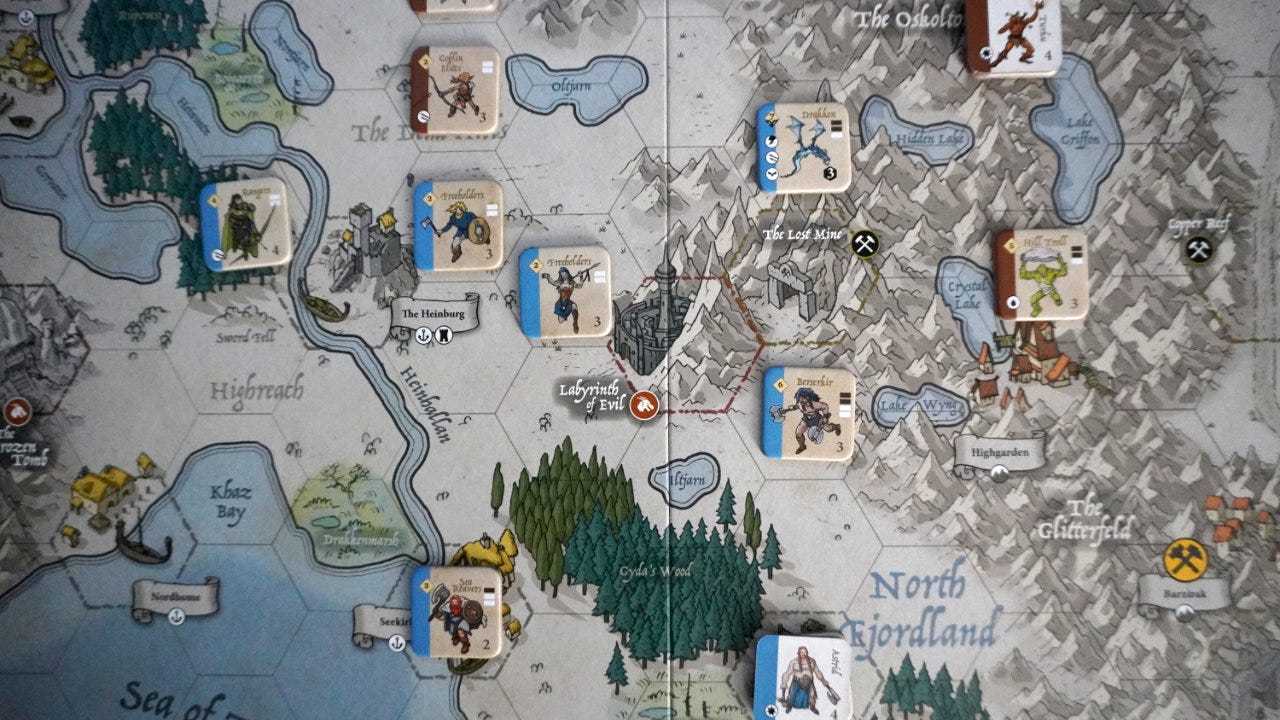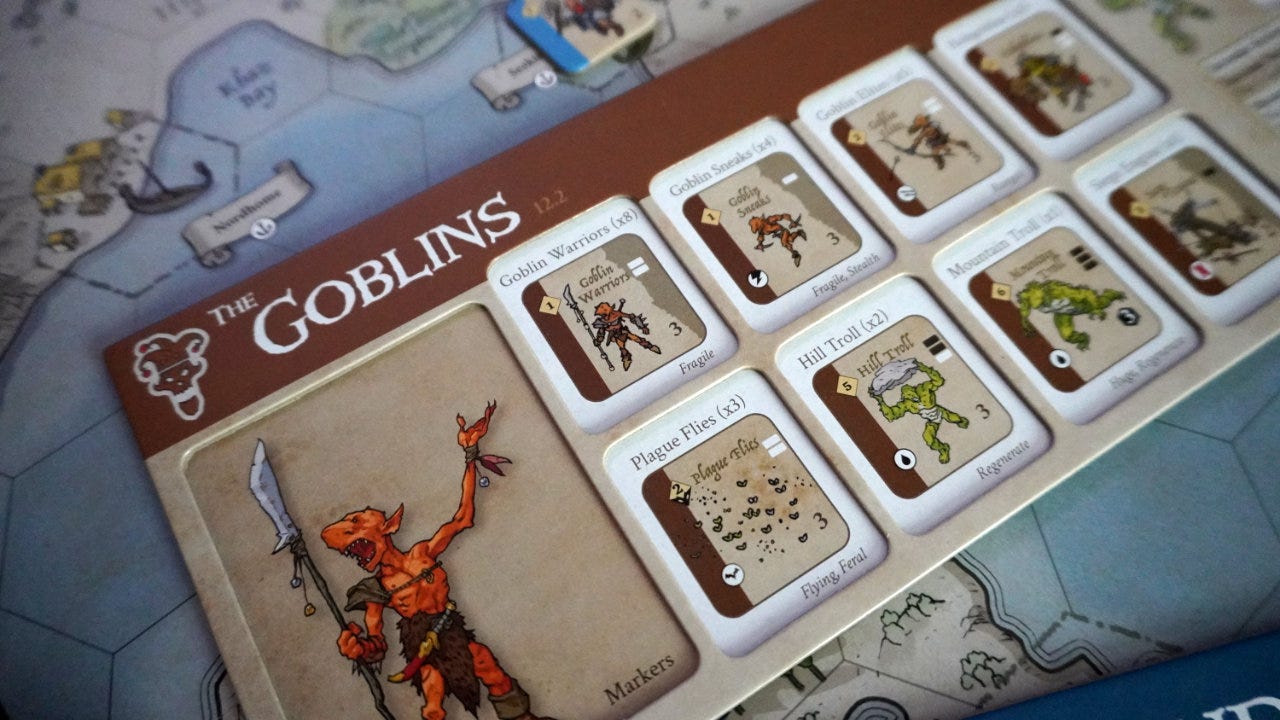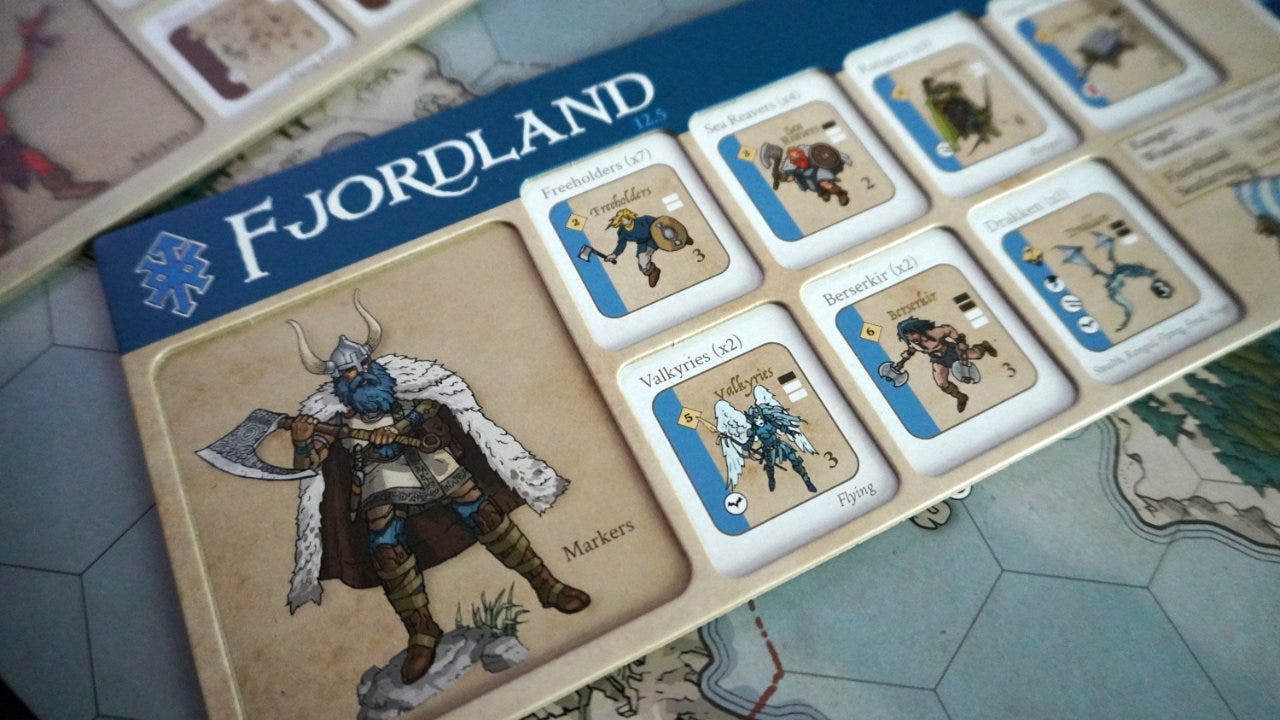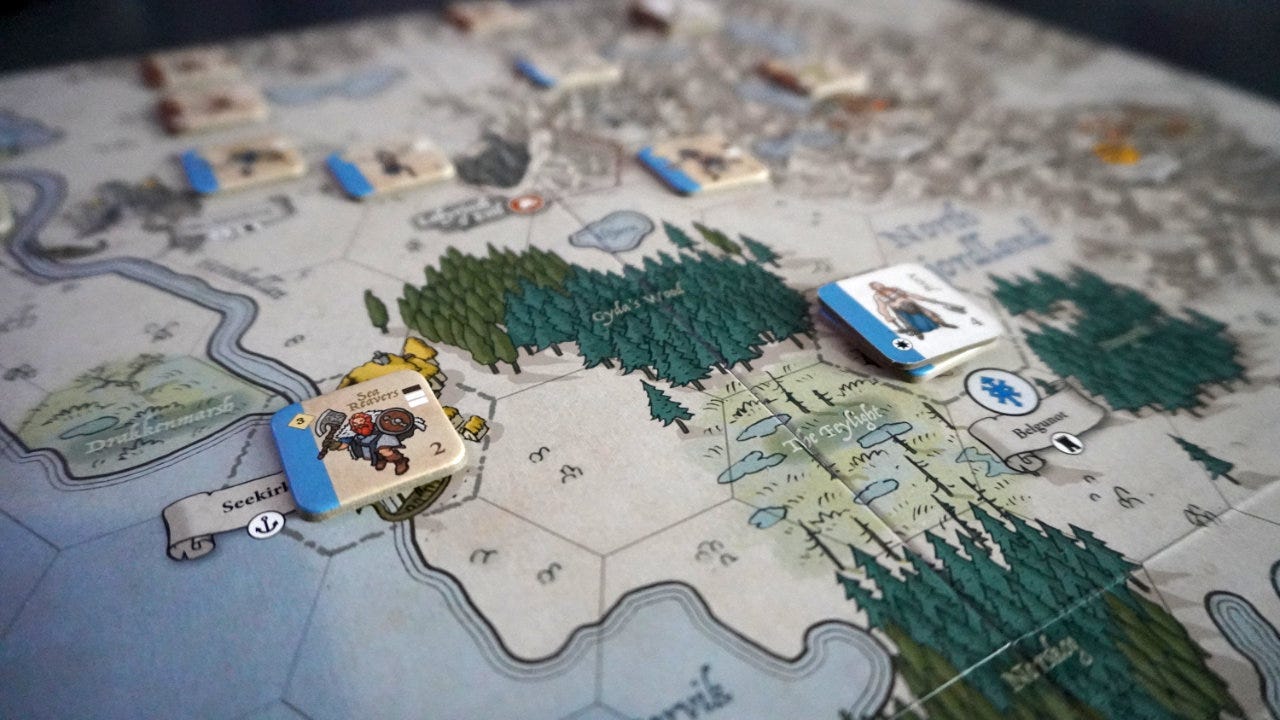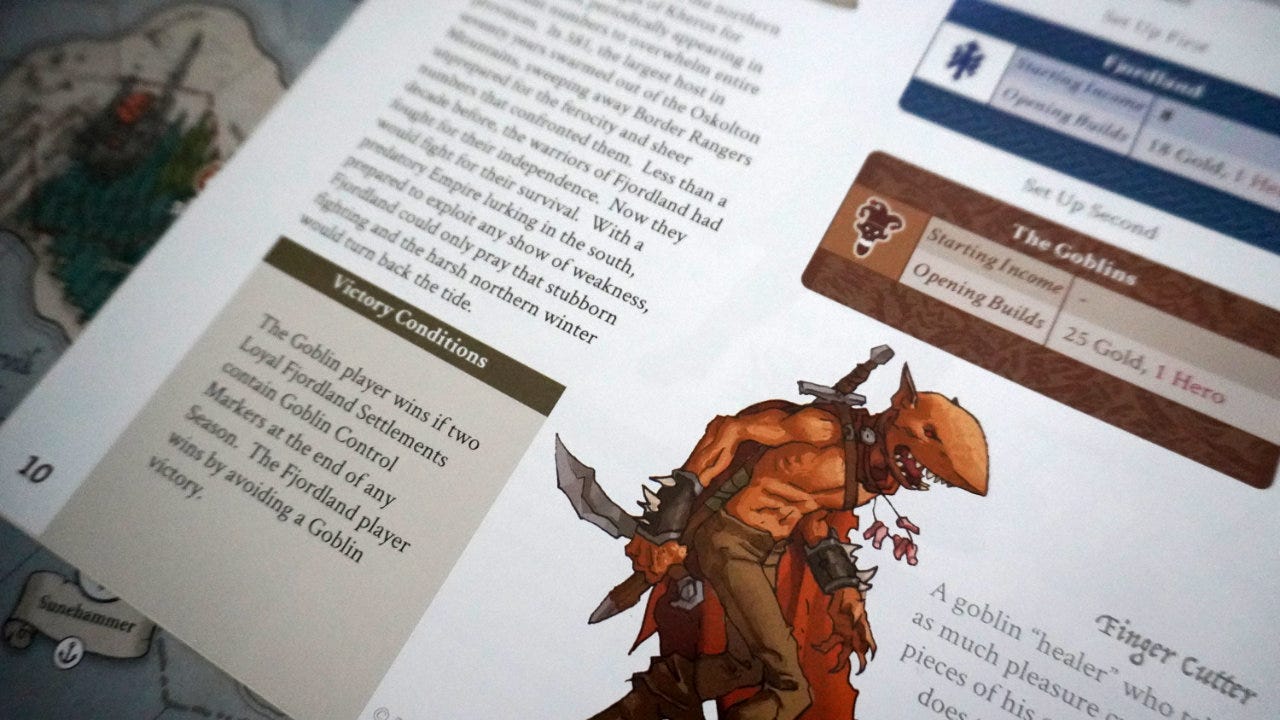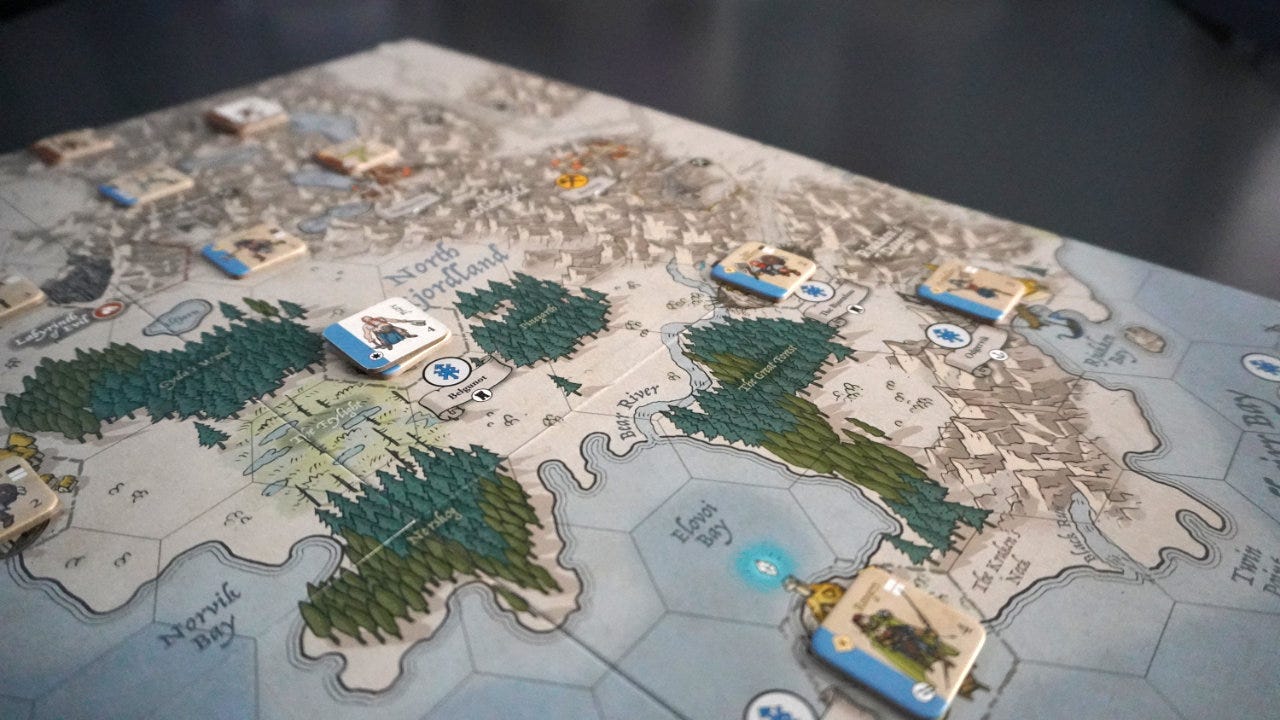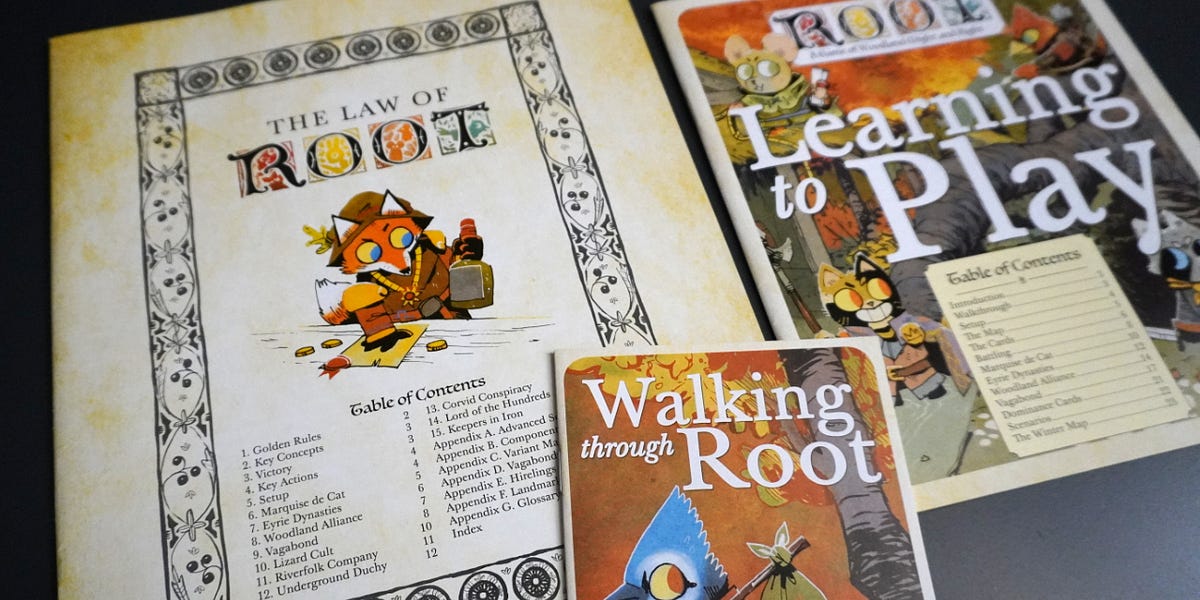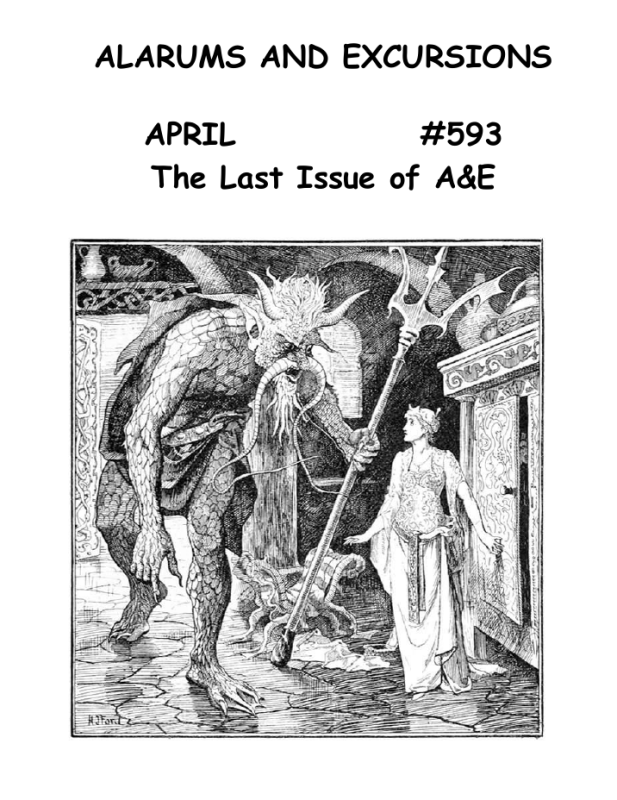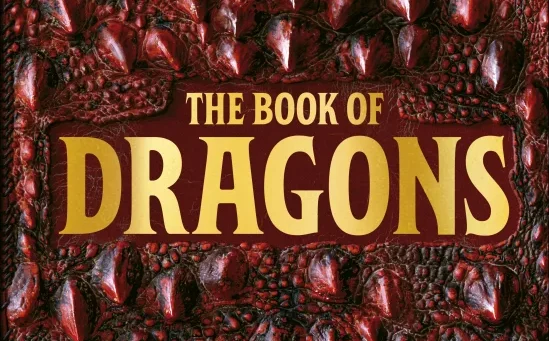SMOOSH JUICE
How should we handle garbage time in tabletop games?
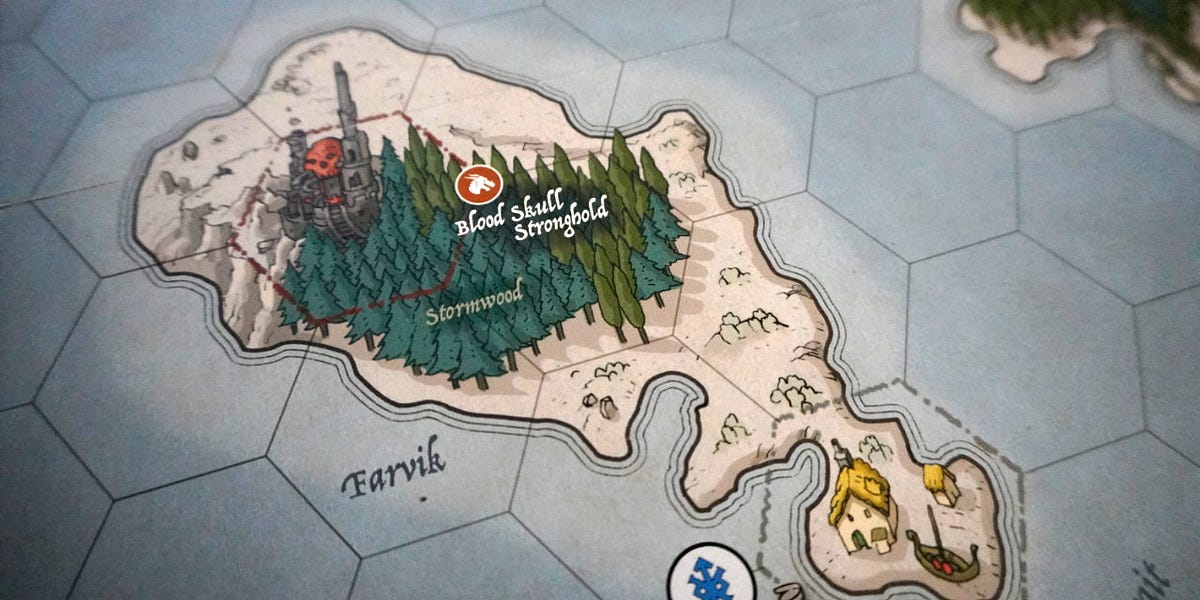
Last week we explored the Ocean Madness tracker in Deep Regrets (Cowan, 2025).
This week we are learning why ending a game early feels unsatisfying, and how we can use some psychology to make it better.
Friday night, I had the good fortune to be able to play another game of Burning Banners (Moeller, 2024) — a game I’ve written about before in the context of it’s critical hit confirmation mechanism. Check out that article for an overview of how this fantasy wargame works.
The scenario we chose was The Great Goblin Raid:
Goblins have plagued the northern mountain ranges of Kheros for generations, periodically appearing in sufficient numbers to overwhelm entire provinces. In 581, the largest host in seventy years swarmed out of the Oskolton Mountains, sweeping away Border Rangers unprepared for the ferocity and sheer numbers that confronted them. Less than a decade before, the warriors of Fjordland had fought for their independence. Now they would fight for their survival.
It’s a straight-forward campaign lasting 6 turns with clear victory conditions:
-
The Goblin player wins if they control two Loyal Fjordland Settlements at the end of any turn.
-
The Fjordland player wins by avoiding a Goblin victory.
The Goblin player needs to be aggressive with weak units and capture two settlements before time runs out. Fjordland just needs to survive.
Playing as the Goblins, I made my best effort. Although I had some short-lived success in the beginning, poor dice rolls (and suboptimal strategy) led to stagnation after a few turns. This allowed Fjordland to use their seasonal income to grow ever stronger and harder to beat.
With about two turns (seasons) left in the game, it became clear that my Goblins could not win. In fact, we’d failed to even attack a single, loyal Fjordland settlement… let alone capture one. Victory was quite literally impossible.
After a bit of discussion, we decided to just call the game. I conceded and we ended it rather than playing out the final turns.
I’ll admit it… I hate conceding and/or ending board games early even if the conclusion is known. I have this urge to “just play it out to the end.”
Otherwise it feels like an unfinished play.
Why is that?
You’ve probably heard the terms “closure” and “need for closure” at some point in the context of grief, loss, and endings. People use it informally to mean a desire for a sense of certainty and finality at the end of an event. Often it is in the context of life-changing events like a death, tragedy, divorce, or breakup.
In psychology, the more precise term used is cognitive closure for which the APA offers two definitions:
-
The state in which an individual recognizes that they have achieved understanding of something.
-
The final stage in figuratively seeing the total picture and how all pieces of it fit together.
Not everyone has the same need for cognitive closure, as demonstrated by social psychologist Arie Kruglanski’s Need for Closure Scale (NFCS).1
People who score highly (205-246) on the NFCS are more likely to “dislike ambiguity, make decisions, and form impressions quickly and have strong opinions.” This need for cognitive closure seems to be manifested in different ways such as “desire for predictability, preference for order and structure, discomfort with ambiguity, decisiveness, and close-mindedness.”2
Some people have a more compelling need for cognitive closure than others.
But does closure actually help? Is it a good thing?
Dr. Pauline Boss offers an alternative view, proposing that the very idea of closure is a myth:
“…closure has a definition meaning finality. It means closing the door on something that has happened. It’s a perfectly good word in the business community for closing a contract, for closing a real estate deal, or for closing a road and after a flood has occurred, but it is a harmful word in human relationships. It indicates that even though we have had attachment to someone or something, like a pet, that once they are gone, we can close the door on that. That’s not true. There are continuing bonds as has been now declared in the grief literature and we don’t close the door, we live with loss and grief.”3
Instead of finality, what people really want is clarity and certainty about what’s going on.
This ties into her concept of ambiguous loss — a loss in which a loved one is missing physically (e.g. war, kidnapping) or psychologically (e.g. brain injuries, dementia). The grieving person is left with unanswered questions and denied clarity.
While I’m certainly not comparing traumatic grief events as those above to tabletop game victories and losses, I do think the ambiguous loss framework is a helpful one that can be used when thinking about game design.
Support Skeleton Code Machine with a TUMULUS subscription!
It’s not just me and my apparent need for closure that is bothered by games (both competitive and co-op) where the victor is clear before the game ends.
In both sports and tabletop games, there often exists time between:
-
When it becomes clear who is going to win, and
-
When the game actually concludes
This is called garbage time:
“The period toward the end of a timed sports competition that has become a blowout and the outcome has effectively already been decided.”4
To combat garbage time, some sports even have unwritten rules to try to even out the game if it becomes too lopsided. Running up the score and “piling on” is generally considered bad form.
And with this, we return to the original story of The Great Goblin Raid.
We knew I was going to lose, but the game wasn’t over. So the remaining time in the game (~2 turns) is just garbage time, leaving us with two options: (1) play it out to the end with significantly reduced fun, or (2) end it early resulting in an ambiguous loss.
Not great options.
But I think a solution exists…
In chess, it is possible to be forced into a position where you know a checkmate is coming and there’s nothing you can do to stop it. The official rules of chess, however, explicitly handle this situation:
-
“A common way for a player to win the game is the resignation of the opponent, conceding inevitable checkmate.” (4B. Other decisive outcomes)
-
“The player whose opponent resigns wins the game. This immediately ends the game. Saying I resign or tipping over the king are relatively clear ways to resign.” (13B. Resignation)
Not only is conceding (i.e. resignation) an official part of the rules of the game, it even includes specific ways to do it.5 The act of tipping over the king acts as what Dr. Boss might call a ritual that reduces ambiguity. Both players understand what it means, they get that it ends the game, and the match ends in clarity.
This is the solution:
-
Add an explicit concession mechanism: Like chess, explicitly implement a mechanism that allows players to concede or resign during the game. Make it part of a specific phase or segment of the players turn. Perhaps even add a ritual like tipping over the king.
-
Integrate it into the narrative: In the best cases, this mechanism should be integrated into the story of the game. This would particularly apply in TTRPGs where tactical, turn-based combat has a known outcome, resulting in garbage time.
Suddenly the end of the Goblins isn’t an awkward conversion about whether or not we should quit the game or just play the last two turns. There are explicit rules for what to do when a blowout happens — concede and end the game.
One might argue that the explicit concession rules don’t actually change anything. The losing player either concedes or they don’t — it doesn’t matter if it’s in the rules. The options are logically identical.
And that person would be right… sort of.
To say that ignores, however, the cognitive bias called the framing effect:
Framing effect is a cognitive bias where people’s decisions change depending on how options are framed, even when the options are logically identical.
Simply changing how choices are framed can change both (a) how people feel about the choices and (b) which of the options they choose. Rather than being rational actors, the psychology of decision-making is far more complicated.6 People tend to favor a sure gain over a probable gain. They also tend to feel losses are more significant than equivalent gains.7
By reframing the option to (A) resign or (B) keep playing to the end, we can significantly change how the end of the game feels for players. Sure, they could have resigned anyway, but now it is part of the game.
It’s not necessarily about winning or losing the game, but ensuring the ending feels real and ends with clarity. Tipping the king to resign is an in-game ritual that provides the cognitive closure that many players desire.
Some things to think about:
-
Reduce ambiguous losses: When a game ends in a way other than the ones described in the rulebook, it can make the play of the game feel incomplete or unsatisfying. This is particularly true for players with a strong need for cognitive closure.
-
Consider the framing effect: The framing effect cognitive bias is extremely powerful even when two options are logically identical. When giving players options, pay attention to if they are phrased as a positive or negative context.8
-
Make concession rules explicit: I’m sure miniature and historical wargamers come across the challenge of “garbage time” all the time, but I’m not sure even they have a clear answer for this. It depends on what the players want out of the game: fun, narrative, or a decisive victory. That said, I think having an explicit concession rule that is part of the core game loop would help in most cases.
What do you think? How do you handle garbage time at the end of a game? Do you keep playing to the end or do you just call it early and not finish the game?
— E.P. 💀
P.S. “A beautiful, straight-forward, and inspiring book.” Get ADVENTURE! Make Your Own TTRPG Adventure, the latest guide from Skeleton Code Machine, now at the Exeunt Press Shop! 🧙
Skeleton Code Machine is a production of Exeunt Press. All previous posts are in the Archive on the web. Subscribe to TUMULUS to get more design inspiration. If you want to see what else is happening at Exeunt Press, check out the Exeunt Omnes newsletter.

